Should UK airport slot rules be changed? We look at the issues and options
Links on Head for Points may support the site by paying a commission. See here for all partner links.
The UK Government has just launched its first consultation on airport slots in over thirty years.
With a third runway at Heathrow stalling (again) and expansion plans at other airports being downsized, adjustments to slot allocation rules may be the only way to increase overall capacity at airports.
“Given the current capacity constraints … and the likelihood of these worsening without new capacity, the Government believes that it is essential that the utilisation of existing capacity is fully maximised.”
You can read the consultation document here. Despite being 92 pages long (!) it is a surprisingly informative introduction into the slot allocation process.
The consultation will only apply to so-called ‘Level 3’ slot coordinated airports, ie. the most congested airports in the country. These are:
- London Heathrow
- London Gatwick
- London City
- London Stansted
- London Luton
- Manchester
- Birmingham
- Bristol
The consultation will gather feedback on a variety of ideas to increase the efficiency of existing airport operations to make the best use of the infrastructure in place. The objectives for the slot reform are:
- “Stimulating a competitive environment by creating a more efficient, transparent, and dynamic slot market”
- “Establishing a framework for the allocation of new slots”
What are airport slots, anyway?
Fundamentally, an airport slot is a landing or take-off right for a specific date and time at an airport. Use of runways and taxiways is carefully divided into small increments that are allocated to airlines so that they can build their own flight schedules. It ensures that airports run smoothly and efficiently.
At the busiest airports, such as Heathrow, slots are lucrative in themselves and can fetch millions of pounds. In 2017 Oman Air paid a record $75m for a sought-after early morning slot at Heathrow.
To operate a flight, an airline needs two slots – one for landing and one for take-off – so there are twice as many slots as flights.
Slots only become an issue when more airlines want to operate into an airport than the airport can accommodate. This can come down to a number of factors, including the number of runways, terminal capacity or regulatory restrictions such as a flight cap.
At Heathrow, for example, the biggest constraint is the number of runways which can only facilitate so many flights per day.
How are slots currently allocated?
Under the current system, there are two criteria for awarding slots.
By far the largest proportion of slots, at Heathrow at least, are awarded under so-called ‘Historic Rights’. This means that if you have a slot in the previous summer or winter flying season you get to keep it for the next one. This is one of the reasons why British Airways owns 51.8% of all Heathrow slots – it inherited many of them from its predecessors such as BEA, BOAC and bmi.
To keep a slot, the airline must abide by the 80:20 ‘use it or lose it’ rule in which the slot is used at least 80% of the time. As long as it does so, it can keep the slot in perpetuity.
Any slots that are not allocated under historic rights are allocated under a set of guidelines that take into account connectivity, competition and various other operational factors.
Slot coordination was introduced in 1993. Prior to that, the flag carrier of a country was responsible for allocating slots. It doesn’t take a rocket scientist to see how that might be anti-competitive!
Pre-empting the introduction of regulatory slot coordination, British Airways split out its slot coordination department in 1991 to create Airport Coordination Limited. This is now the world’s largest airport slot coordinator, working with 72 airports.
When rules around historic and secondary slot rights were introduced, airline demand for slots was below available capacity. This meant that airlines were largely free to launch and operate flights at UK airports ad-hoc without having to worry about securing slots.
That has since changed, of course. Through various mergers and buy-outs, British Airways now owns the 51.8% of all Heathrow slots with second-best Virgin Atlantic coming in with just 4.3%. The situation is similar with Gatwick and easyJet. This obviously bestows huge competitive advantage on the incumbents.
This is a problem, because it means the airport marketplace becomes (in the words of the government) “undynamic”:
“However, the combination of airport capacity being congested and the majority of slots at an airport being held by one or two airlines can inhibit competition and lead to the slot allocation system becoming undynamic …. If an airline loses a slot at a capacity constrained airport it can be very difficult, or take many years, for the airline to acquire a new one. It is often only when an airline becomes insolvent that significant numbers of slots become available at a capacity constrained airport. The impact of this is that there are fewer opportunities for new airlines to commence services at an airport or for existing airlines at the airport to grow, limiting choice and connectivity for businesses and passengers.”
To put this into perspective, 99% and 98% of slots are allocated based on historic rights at Heathrow and Gatwick respectively. Even though at least 50% of the remaining slots must be allocated to new entrants, it’s very hard for airlines to launch new flights at these airports.
JetBlue is a prime example of this, having struggled to get a foothold in the London market. It has had to split its operations across Heathrow and Gatwick, increasing its cost base and lowering its efficiency.
How could the slot allocation process change?
Now that we are no longer part of the EU, the UK Government has greater latitude to reform the slot allocation process. However, an airline obviously needs slots at two airports to operate an international flight so there has to be an element of standardisation.
The consultation document pitches a number of different options that it could consider:
Increasing slot utilisation and the ‘use it or lose it’ rule
One of the options on the table is to increase the number of flights an airline must operate in order to retain its slots. At present, that is 80%. For example, if an airline had slots for a flight every single day of the year, it would only have to operate flights on 292 days in order to meet this rule.
The consultation document suggests that this could be increased to a higher level, such as 90%. Whilst this would be great for efficiency and mean the runways and airport facilities are being used at a higher capacity, there are a few reasons why it could backfire:
- Unused slots provide some resilience and redundancy during times of disruption. The higher the utilisation rate the closer you are to operating the airport at 100% capacity. When things go wrong and flights are delayed or cancelled, you have less of a buffer to reschedule flights and recover.
- Increasing the utilisation rate could increase the number of ‘ghost flights’ during quieter periods of the year. These are flights that are operated for the sake of retaining slots – sometimes without even carrying passengers. There are obviously environmental issues with this approach too.
Slot routing restrictions and retiming
At the moment there are a number of slot rules that give incumbent airlines preferential treatment over new entrants.
This includes the fact that new slots allocated to incumbents can be used for any route whilst new entrants must use their slots for the allocated route for at least two flying seasons (one year) before they can use them for other destinations.
In addition, incumbent airlines are able to re-time their slots during the coordination process before any remaining slots are re-allocated. This means that existing airlines have a competitive advantage over new airlines, particularly when an airline goes bust or ceases operations at an airport and leaves a void. Existing airlines are able to cherry pick the more preferable slots, leaving little on the table to interest new entrants.
In both cases, the Government is proposing to level the playing field between incumbent airlines and new airlines. It proposes that all new slots should be treated the same, with a moratorium of four flying seasons (two years) until airlines can fly to alternate destinations. It also suggests that the re-timing advantage be removed and that re-timing requests and new slot requests be considered at the same time.
Both of these suggestions seem eminently sensible to me.
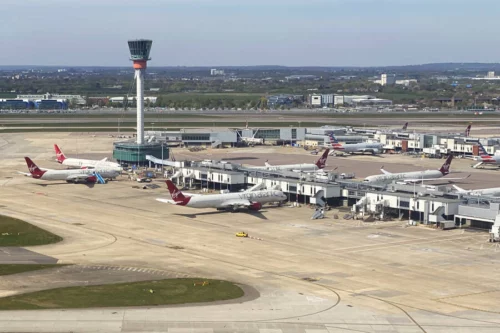
The Government wants greater control of the slot coordinator
At the moment, slot coordination is managed by a range of private companies which are contracted by airports to manage their slot portfolio. The largest of these is ACL, which I mentioned above.
This means that the Government has no control over slot coordination beyond regulatory and policy framework. It wants to change this.
The consultation document proposes to create a new power for the Secretary of State:
“to issue a direction to the coordinator requiring it to undertake a certain action. Any direction would need to be in keeping with Regulation (for example a direction could not require the coordinator to do something which is not within its remit). We do not believe that it would be appropriate for the Government to have the ability to direct the coordinator on the allocation of individual slots or to take action which would unfairly benefit a particular airport, airline or country.”
The great slot trading marketplace
When slot coordination was first introduced in the 90s, nobody expected slots to become tradable commodities or sell for tens of millions of pounds.
In 1999 the UK High Court confirmed that whilst slots are not the property of the airline, they are allowed to be traded or sold between airlines however they wish.
In a 2019 report, Frontier Economics said that a daily, year-round Heathrow slot pair was worth around £15m for early morning slots, £10m for mid-day slots and £5m for evening slots. Clearly, trading and selling slots is big business.
Unfortunately, because slot coordination was not designed with trading in mind there is no official marketplace or register and there is a “lack of transparency over who holds and operates each slot”.
To solve this problem, the Government is proposing to establish a compulsory public slot register for airports as well as a mandatory trading platform:
“It is envisaged that ACL would be responsible for providing and maintaining the platform. At the very least, slots that are available for trading would be required to be advertised on the platform.”
It also wants to give the slot coordinator regulatory oversight to review and approve all slot trades.
These are good changes, I think, although arguably slot trading should be scrapped altogether.
A fairer system would be to require airlines to forfeit their slots to the allocation pool should they no longer have any need for them. This would allow the slot coordinator to re-allocate slots based on the most attractive bidder, rather than the airline with the most money. It would allow the slot coordinator to be more strategic and prioritise additional competitors or new routes.
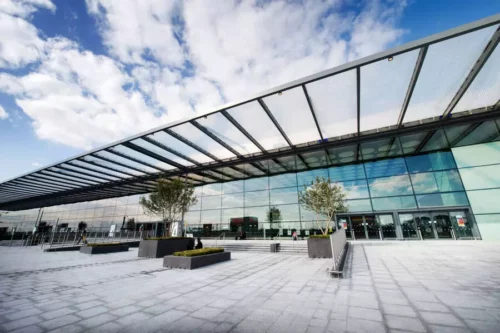
Slot leasing …. in perpetuity
Slot leasing is a related issue.
At present, airlines are able to lease out their slots for an indefinite period of time, allowing them to retain their slot portfolio until such a date as they should require them. This means that some slots are retained by airlines for no other reason than they can make money by leasing them to other airlines.
The consultation document quite sensibly writes that:
“It is the Government’s view that an airline should not use leasing to hold on to a slot for an extended period which it has no use for. Leasing should not be used as a long-term operational solution and slots should instead be returned to the pool for reallocation.
We are proposing that slot leasing is limited to a set period after which the slot will have to either be returned to the pool or flown by the original slot holder.”
Conclusion
A lot of these suggestions seem quite sensible, which probably means the airlines won’t like them.
The Government is also proposing to reform the way new slots are allocated, which I haven’t touched on. This could have a significant impact given the proposals for a third runway at Heathrow and Gatwick’s plans to bring its Northern taxiway into use as a runway.
Incumbent airlines such as British Airways would love to see any new capacity pro-rata’d based on existing slot ownership whilst others would take the opposite view and would prefer it to go to challenger airlines.
It will be interesting to see what the results of the consultation are, which runs until 9th February.



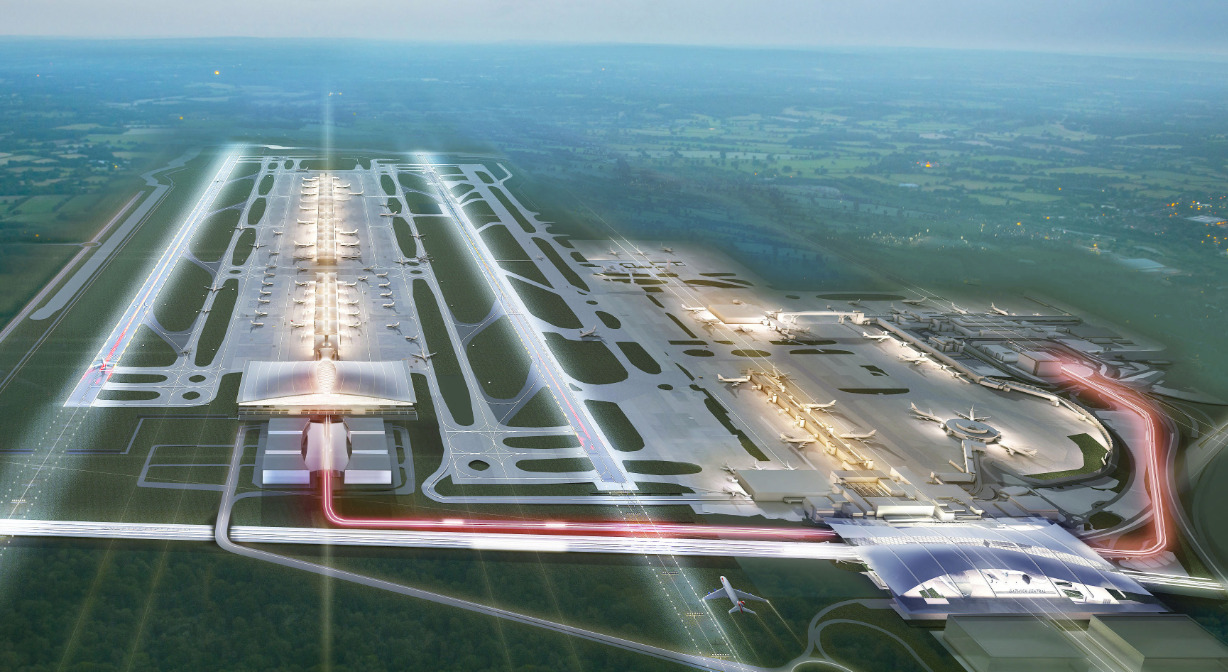
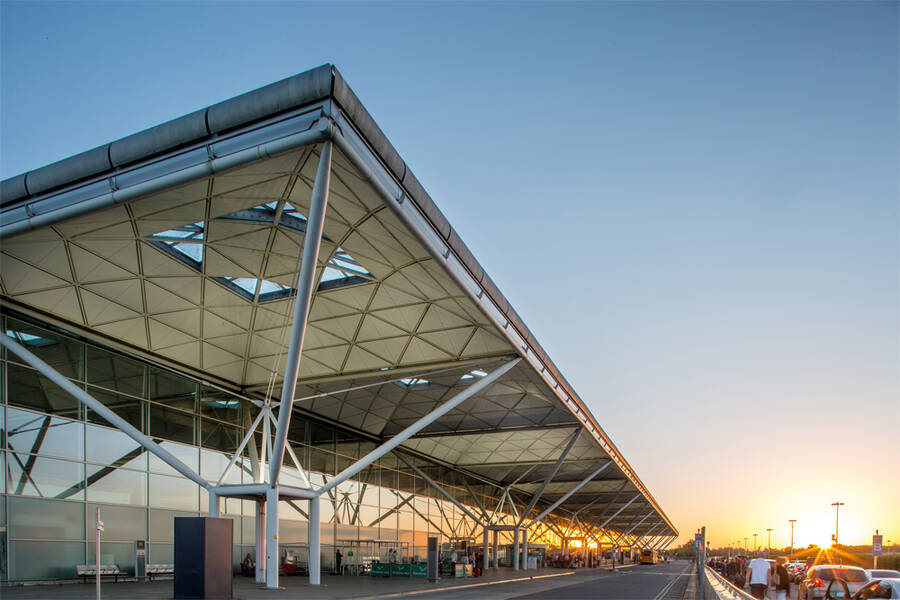
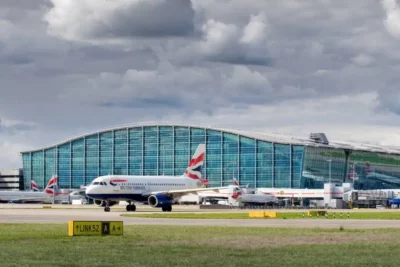
 Rhys
Rhys 





Comments (93)